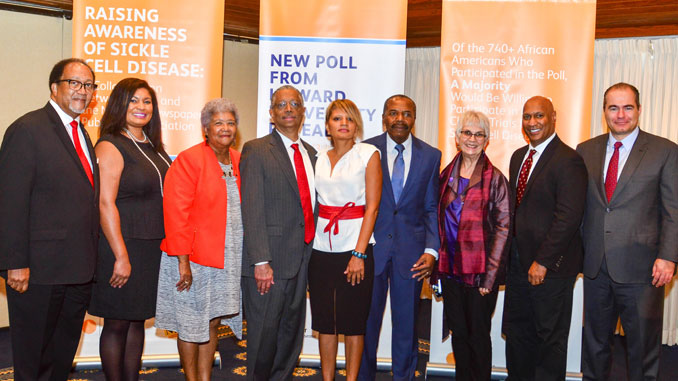
By Stacy M. Brown
A new poll about sickle cell disease (SCD), presented by the National Newspaper Publishers Association (NNPA) and Pfizer revealed that while the majority of respondents were familiar with the illness, less than 40 percent realized that it disproportionately affects people of African descent.
Earlier this year, Pfizer partnered with the NNPA to increase awareness about SCD in the Black community and to encourage greater participation in clinical trials for treatments involving the disease.
The groundbreaking poll also helped to dispel one of the long-held myths about the negative perception of medical professionals in the Black community.
The poll revealed that, despite long-standing historical perceptions of mistrust in medical professionals by the Black community, 91 percent of respondents indicated that they believe health care professionals are trustworthy.
Seventy-nine percent of respondents had positive or neutral attitudes toward sickle cell disease (SCD) trials and a majority indicated a willingness to participate in future clinical trials for SCD, given appropriate knowledge and recommendations from health care professionals.
“Our core belief is that every patient counts, especially when it comes to rare disease,” said Michael Goettler, the global president of Pfizer’s Rare Disease unit. “When you have a rare disease, often you feel lonely and your physician may not be able to help you.”
Goettler noted that the poll results provide a basis for Pfizer to seek more detailed assistance for sufferers.
“These poll findings will give our readers an in-depth understanding of how sickle cell disease is perceived by African-Americans,” said Dr. Benjamin F. Chavis, Jr., president and CEO of the NNPA. “With this knowledge from the dedicated research team at Howard University, and through our collaboration with Pfizer, we can spur meaningful conversation and assess the best ways to improve disease education for those impacted in our communities.”
Researchers and officials at Pfizer and the NNPA each said that they hope to continue to educate patients, family members and primary care doctors about SCD clinical trials.
“Close to 20 percent said they were unsure of how it was inherited and this presents a problem,” Adams said. “If you don’t know how it’s inherited, you may be putting your offspring at risk.”
Recommended For You.

Eric Connerly Data News Weekly Contributor
New Orleans is set to receive almost $50 million in federal funding to counteract pollution


Be the first to comment